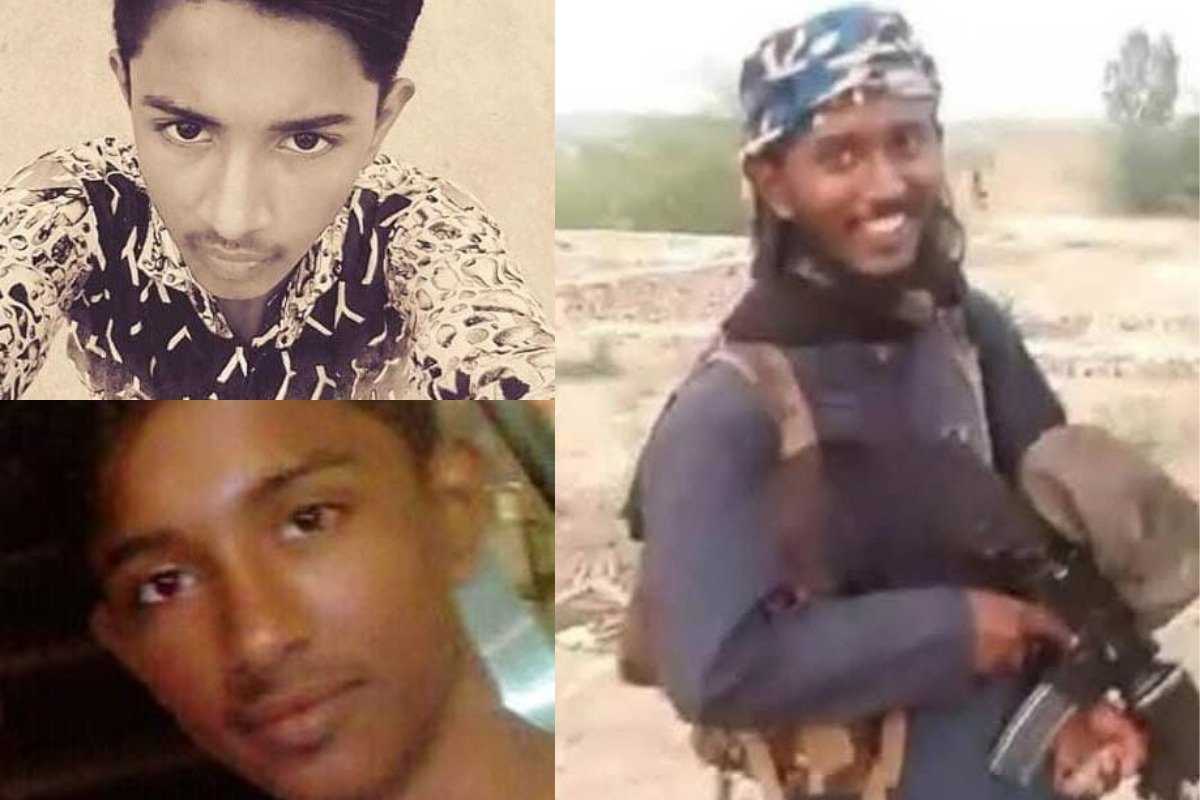TTP’s new foreign legion? TTP begun recruiting foreign fighters in Afghanistan to target Pakistan
Bangladeshi man travels via India to join militant group in Afghanistan, killed by Pakistani forces while infiltrating border

Kamran Ali
Correspondent Nukta
Kamran Ali, a seasoned journalist from Khyber Pakhtunkhwa, Pakistan, has a decade of experience covering terrorism, human rights, politics, economy, climate change, culture, and sports. With an MS in Media Studies, he has worked across print, radio, TV, and digital media, producing investigative reports and co-hosting shows that highlight critical issues.

A Bangladeshi national was among 17 militants killed in a Pakistan security operation, officials said.
Nukta
Faysal Hossain sold goods outside mosque in Dhaka
Family wants his body back, say they don't know how he became radicalized
100 Bangladeshis joined Pakistani militants groups including TTP, says Bangladeshi police source
A Bangladeshi national has been identified among militants killed in a recent security operation in Pakistan, officials and relatives confirmed to Nukta.
The family of the slain insurgent has appealed to Bangladeshi and Pakistani authorities to repatriate his body, as Islamabad intensifies its crackdown on extremist networks operating within the country.
According to a statement from Pakistan’s military media wing, the Inter-Services Public Relations (ISPR), security forces carried out an operation in the Lakki Marwat district, near the Afghan border, on September 26–27, killing 17 “terrorists.”
Among them was a Bangladeshi national identified as Faysal Hossain, also known as Saad.
Travel to Dubai
Speaking by phone from Dhaka, Faysal’s brother, Arman Hossain, said his brother had told the family he was traveling to Dubai for work.
“He left home in March last year, around Ramadan,” Arman said. “He said he would travel via India, and the last location he shared with us was India.”
According to the family, Faysal told them he could not send money right away because he was “undergoing training” and would be formally hired later.
“During that time, we kept contacting him, but he avoided giving clear answers,” Arman recalled. “We asked him to make a video call or share his live location so we could be sure of where he was.
"He made excuses, saying his phone had technical problems and that he would contact us once he bought a new one.”
Faysal’s maternal uncle, Toukir Ahmed, corroborated Arman’s account. He said that in early August this year, Bangladeshi police contacted the family, asking about Faysal’s whereabouts.
“When we told them he was in Dubai, they informed us that he had actually joined the Tehreek-e-Taliban Pakistan (TTP) after traveling to Afghanistan via India,” Ahmed said.
The Tehreek-e-Taliban Pakistan (TTP) — or Pakistani Taliban — is a militant umbrella group that operates mainly in Pakistan’s northwestern regions along the Afghan border. It seeks to impose its version of Islamic law in Pakistan and has claimed responsibility for numerous deadly attacks.
The family initially refused to believe the police until they were shown photographs of Faysal holding weapons — and later, images confirming his death.
“We were taken to meet senior officials who presented all the evidence, and that’s when we were completely shocked,” said Ahmed.
A Bangladeshi police officer, speaking anonymously, confirmed the case but declined to say how Faysal had been traced or whether Bangladeshi authorities had coordinated with Pakistan.
Who was Faysal?
Faysal Hossain, 22, completed high school in Dhaka. He first worked at a stationery shop but later began selling perfume, miswak, prayer rugs, and caps outside local mosques.
“He used to say that this world is temporary, and that he wanted to live according to Islamic principles,” his brother said.
The family says they had no idea how he became linked to the TTP, as he had never exhibited any suspicious behavior.
They are now desperate to bring his body home.
"We have sent a letter to the Bangladeshi authorities through the district administration, and they’ve informed us that they will raise the matter with Pakistani officials to arrange the repatriation,” Arman said.
Pakistani authorities have not issued an official statement regarding Faysal or any contact with Bangladesh. However, TTP-affiliated media outlets have released videos and photographs of him.
Broader network
According to reports in Dhaka-based media, six people were recently arrested in Bangladesh for alleged links to the TTP. Some reportedly confessed to traveling to Afghanistan via Pakistan in October 2024.
Records also show that another Bangladeshi national, Ahmed Jubair, was killed during a Pakistani military operation in Waziristan in April 2025.
The Bangladeshi police officer told Nukta that a recruitment network tied to the TTP has been active in Bangladesh, allegedly led by an individual named Al Imran.
“Around 100 Bangladeshis are involved with the TTP and Ittihad-ul-Mujahideen Pakistan, a consortium of militant groups,” the officer said.
Jawad Yousafzai, a Pakistan-based journalist and conflict researcher, told Nukta that most Bangladeshi fighters have ties to Jama’atul Ansar Fil Hindal Sharqiya, an Al Qaeda-affiliated group formed in 2017 in Bangladesh.
He said the organization primarily targets prisons, madrassas, and social media platforms to radicalize young people.
“While Afghan fighters often join the TTP, the recruitment of a Bangladeshi national suggests the group is trying to portray itself not merely as a local insurgency, but as part of a broader international militant network,” Yousafzai explained.
Veteran journalist Shamim Shahid, who has long covered militancy along Pakistan’s Afghan border, said the phenomenon dates back to the Afghan war.
“During that time, Pakistan welcomed fighters from across the world,” he noted.
“Since then, many have maintained links with like-minded groups — not only from Bangladesh but also from Afghanistan, Turkey, Tajikistan, Uzbekistan, India, Kashmir, and other parts of Central Asia. Such individuals have long been used as proxies by various factions.”







Comments
See what people are discussing